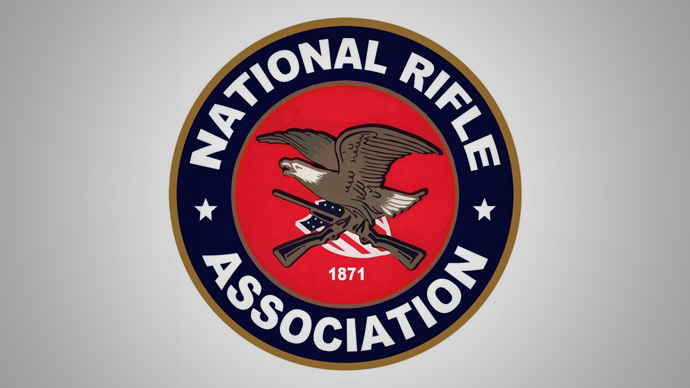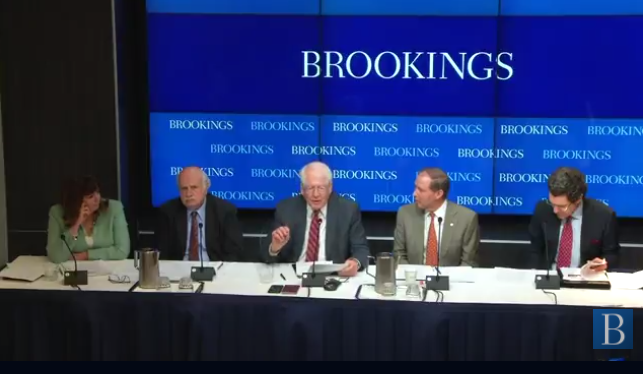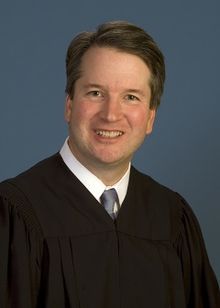Imagine for a moment that billionaire Michael Bloomberg was a strong supporter of the Second Amendment and gun rights. Imagine that, inspired by this belief, he spent $28 million of his personal fortune to help elect candidates that agreed with his position – the great majority of whom were Republicans. Now imagine that a nearly 150-year-old membership organization, the National Rifle Association, opposed these efforts, and using the collected dues of several million Americans, countered Mr. Bloomberg’s endeavors by also spending $28 million to elect pro-gun control legislators, primarily Democrats.
In the minds of campaign finance regulators, who do you think has exerted outsized influence in our democracy? The super-rich guy who spent his personal fortune? Or the organization that represents millions of citizens across the country, who are only able to exert political power by pooling their resources and speaking with one voice?
To most regulators, in this scenario, the plucky group of average Joe’s fighting the good fight for reasonable gun control laws would be the good guy. But change only the underlying policy positions? Suddenly the NRA is emblematic of the alleged problem of “money in politics.”
In the wake of the unfortunate events in San Bernardino, there were, as is often the case after gun violence, numerous calls for Congress to pass gun control measures. Some of these gun control supporters – unable to understand why no legislation of this nature has been passed since the last terrible gun tragedy – returned to that tried-and-true bugaboo, “money in politics.” In the words of ThinkProgress’s Igor Volsky, who spent the hours immediately after the calamity on Twitter responding to politicians’ “thoughts and prayers” with information about NRA donations to their campaigns, “The NRA pays [lawmakers] to only think and pray about gun violence & not do anything else about it.” Volsky parlayed this tweet storm into an appearance on MSNBC, where he explained how “predictable” this buying of American politicians has become.
I will leave the arguments about why “nothing” has been done about gun violence to others. Suffice it to say that sincere, deeply-held differences exist on both sides of the heated debate on this issue that have nothing to do with campaign finance. I’d also like to commend Philip Bump’s Washington Post piece, which deconstructs, in his words, “the naive idea that campaign spending creates members of Congress beholden to outside interests.” Bump points out that the NRA’s donations represent a relatively small percentage of donations either directly or through independent expenditures to help elect lawmakers and explains that the NRA is supporting office holders that already support gun rights.
But what I really want to focus on is how easily one’s underlying policy beliefs dictate views about “money in politics” and what that means for campaign finance “reform” efforts, more generally. Outside of the particular issue that the NRA supports, the organization would be seen by the majority of self-styled “reformers” as the ideal instrument for issue advocacy in a democracy. The NRA is not funded by the richest of the rich. It is not the policy arm of some billionaire philanthropist. It is a collection of dues paying Americans, many of modest means, who want to express their political beliefs, and find that the most effective way to do so is to pool their money together so that their collective voices can be heard. It is supremely democratic.
Beyond that, the NRA is opposed by the archetypal enemy in the eyes of proponents of greater speech regulation – Michael Bloomberg, a member of the one percent of the one percent who is advocating his personal policy preferences in a manner that most Americans do not have the resources to accomplish.
The numbers that began this post are accurate. In 2014, Michael Bloomberg spent almost exactly the same amount of money (actually slightly more) on independent expenditures advocating for gun control measures and in support of pro-gun control candidates as the NRA did supporting those who favor Second Amendment rights.
Other organizations with the exact same structure – the Sierra Club, for instance – are lauded for their fight against wealthy interests – e.g. the Koch brothers. But when it comes to the debate about gun laws, the situation is reversed, and the heroes and the villains miraculously line up with preconceived policy preferences.
This is, of course, not surprising. Political tribalism is visible in all areas of our public discourse. But it is worth remembering in the debate over campaign finance regulations for two reasons. First, for those who favor more restrictions on political speech, the laws will, by definition, never be sufficient – there will always be calls to restrict some other group, some other means of influencing the electorate or elected officials, or some other avenue for voicing an opinion, because there will always be other unrelated policies that have yet to be enacted and face active opposition. Americans will always disagree about something.
Second, such natural bias toward other preferences of one’s political tribe, is exactly why laws and regulations should always err on the side of free speech. Regulators cannot and should not try and “balance” the voices in campaigns by restricting some and amplifying others; it is simply impossible to do so without tipping the scales toward one’s own team. That, unfortunately, is a lesson both the right and left have yet to learn.














